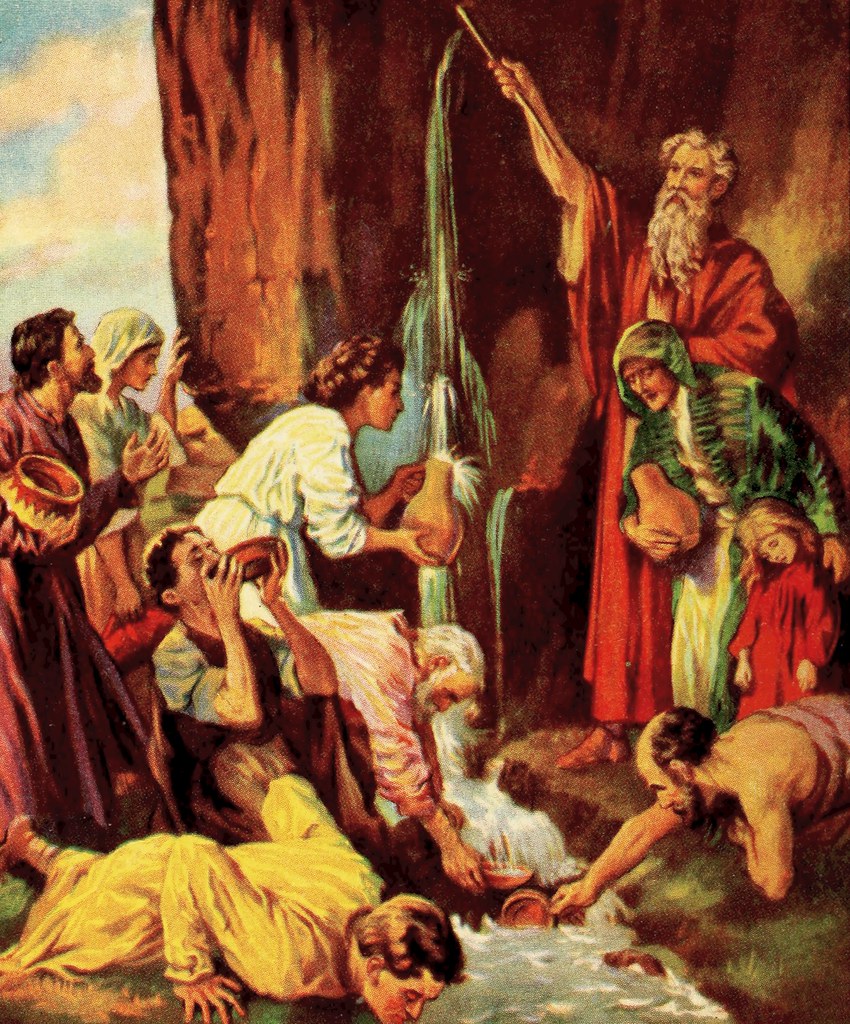Isaiah Chapter 10: Divine Judgment and the Promise of Deliverance through the Messiah
Introduction
In the book of Isaiah, Chapter 10 holds significant importance as it explores the themes of divine judgment and the promise of deliverance through the Messiah. This article aims to provide a scholarly and informative overview of Isaiah Chapter 10, delving into its main themes and their relevance within the Old Testament. By examining the keywords “Divine Judgment” and “Promise of Deliverance through the Messiah,” we will gain a deeper understanding of the chapter’s message.
Isaiah Chapter 10 serves as a continuation of the prophecies found in the book of Isaiah. It sheds light on the consequences of ungodliness and offers hope through the promise of redemption. The chapter presents a powerful message about the sovereignty of God and His ultimate plan for His people.
Overview of Isaiah Chapter 10
Isaiah Chapter 10 provides insight into divine judgment and the promise of deliverance through the Messiah. The chapter serves as a continuation of the prophecies in Isaiah, shedding light on the consequences of ungodliness and the hope of redemption. It presents a powerful message about the sovereignty of God and His ultimate plan for His people.
One example that illustrates the main theme of Isaiah Chapter 10 is the depiction of Assyria as the instrument of God’s judgment on ungodly nations. The king of Assyria, driven by arrogance and pride, assumes superiority over other nations. However, God, in response to this arrogance, punishes the king of Assyria for his haughtiness.
#Isaiah10 #DivineJudgment #PromiseofDeliverance #JesusChrist #PropheticFulfillment #MessiahsIntervention #DivineJustice #HopeinRedemption #AnticipationofSavior #TheologicalContext #BiblicalProphecy #Messiah’sRole #God’sSovereignty #TrustinGod’sPlan #SpiritualRestoration #AssuranceofSalvation #FaithinGodsMercy
Divine Judgment in Isaiah Chapter 10
Isaiah Chapter 10 depicts Assyria as the instrument of God’s judgment on ungodly nations. The king of Assyria, driven by arrogance and pride, assumes superiority over other nations. However, God, in response to this arrogance, punishes the king of Assyria for his haughtiness. Despite the Assyrian attack, God promises to preserve a remnant of Israel, demonstrating His righteous judgment. The chapter also reveals God’s warning against fearing the Assyrian, as His anger and indignation will eventually cease.
An example that further illustrates the divine judgment in Isaiah Chapter 10 is the metaphorical comparisons used to describe Assyria’s pride and the consequences that follow.Assyria’s pride is compared to an axe, a saw, a club, and a rod that are all under the control of the one who wields them. This imagery highlights the extent of Assyria’s pride and the subsequent consequences that will befall them.
Promise of Deliverance through the Messiah
Isaiah Chapter 10 emphasizes the promise of deliverance through the Messiah. The Messiah represents hope and salvation for God’s people, pointing towards a future redemption. This promise aligns with other biblical prophecies that anticipate the coming of the Messiah and His role in delivering humanity.
An example that illustrates the promise of deliverance through the Messiah in Isaiah Chapter 10 is the reference to the anointing oil and the destruction of the Assyrian yoke. The anointing oil symbolizes the empowerment and blessing of God, and the destruction of the Assyrian yoke signifies the deliverance and freedom that the Messiah will bring.
Connection to Other Biblical Prophecies
Isaiah Chapter 10 aligns with various other biblical prophecies, forming a cohesive narrative. These prophecies collectively emphasize divine judgment on those who oppose God’s will and highlight the ultimate triumph of God’s plan and the fulfillment of His promises.
An example that demonstrates the connection of Isaiah Chapter 10 to other biblical prophecies is the mention of the fall of Assyria and the humbling of the proud. This aligns with prophecies in other books of the Bible that speak of the downfall of nations that have rebelled against God. The fulfillment of these prophecies highlights God’s righteousness and faithfulness.
Historical Context of Isaiah Chapter 10
Understanding the historical context of Isaiah Chapter 10 provides valuable insights into its message. The chapter is set during a time when the Assyrian Empire held dominance. Assyria’s arrogance and power were significant factors in God using them as an instrument of judgment. The historical backdrop adds depth and meaning to the chapter’s themes of divine judgment and deliverance.
An example that illustrates the historical context of Isaiah Chapter 10 is the mention of specific cities and the invasion of Jerusalem by the Assyrian army. These historical details help us grasp the gravity of the situation and understand the threat that the Assyrians posed to God’s people.
Analysis of Assyria’s Role in God’s Plan
Assyria’s role as an instrument of God’s judgment in Isaiah Chapter 10 holds significant implications. Their enactment of evil statutes and unjust decisions led to their role in punishing God’s people. God’s punishment of the king of Assyria for his arrogance demonstrates divine justice. The metaphorical comparisons highlight the extent of Assyria’s pride and the subsequent consequences.
An example that further illustrates Assyria’s role in God’s plan is the comparison of their pride to an axe, a saw, a club, and a rod. These tools are all under the control of the one who wields them, emphasizing God’s sovereignty and authority over Assyria.
Preservation of a Remnant and Turning to God
Isaiah Chapter 10 emphasizes the preservation of a remnant of God’s people. The remnant, through faith and trust in God, turns away from reliance on the Assyrians. This shift represents a spiritual turning point, wherein the remnant places their faith in the Lord, the Holy One of Israel. The remnant refers not only to physical descendants but also to spiritual descendants with faith in Christ.
An example that further illustrates the preservation of a remnant and their turning to God is the prophecy of the remnant of Jacob returning to the mighty God. This highlights the remnant’s decision to place their trust in God and turn away from the Assyrians, symbolizing a spiritual revival and renewal.
The Assyrian Invasion and God’s Intervention
Isaiah Chapter 10 narrates the invasion of Jerusalem by the Assyrian army. Despite the Assyrians’ threatening presence, God commands His people not to fear. The destruction of the Assyrian yoke signifies deliverance, aided by the anointing oil. God intervenes and defeats the Assyrians, demonstrating His power and protection over His people.
An example that further illustrates God’s intervention during the Assyrian invasion is the mention of the anointing oil and its role in the destruction of the Assyrian yoke. The anointing oil represents the empowerment and blessing of God, and its destruction signifies the deliverance and freedom that God brings to His people.
The Downfall of Assyria and the Humbling of the Proud
Isaiah Chapter 10 prophesies the downfall of Assyria and the humbling of the proud. The destruction of the mighty Assyrian warriors and the fall of Lebanon symbolize the humbling of Assyria’s strength. God’s judgment upon Assyria is fulfilled, highlighting His righteousness and faithfulness. The chapter emphasizes the ultimate power of God to humble and break the pride of those who oppose Him.
An example that further illustrates the downfall of Assyria and the humbling of the proud is the mention of the destruction of Lebanon, known for its mighty forests. This imagery represents the extent of Assyria’s strength and the subsequent humbling that will befall them.
Conclusion
In conclusion, Isaiah Chapter 10 serves as a profound testament to divine judgment and the promise of deliverance through the Messiah. The chapter’s historical context, connection to other prophecies, and analysis of Assyria’s role deepen its significance. The preservation of a remnant and God’s intervention further exemplify His faithfulness and desire for redemption. Through Isaiah Chapter 10, we gain a greater understanding of God’s sovereignty, His plan for His people, and the hope found in the promise of the Messiah.
Keyword Checker



